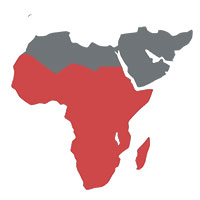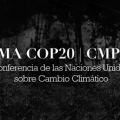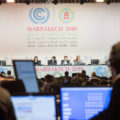Doh(a)! The Tale of the Forgotten Amendment
Su-Kim M | November 14, 2016.
Australia’s decision to ratify the Paris Agreement last week gained widespread media attention, both in Australia itself and also from international news outlets closely following COP22 in Marrakech. However, the response to Australia’s decision to concurrently ratify the Doha Amendment has been noticeably more muted in mainstream media.
The Doha Amendment to the Kyoto Protocol establishes a second commitment period that extends the emissions reductions responsibilities of developed countries until 2020. An important tool to reduce emissions and increase pre-2020 ambition in the fight to limit human-induced warming to 1.5°C, the Amendment came out of the 2013 climate talks, when developed countries including Australia, Norway, and the European Union agreed to continue the Kyoto Protocol.
The Doha Amendment has yet to reach the necessary threshold for it to take effect, despite being created two years prior to the Paris Agreement. Notably, it requires ratification from 75 per cent of the 192 parties in the Kyoto Protocol in order to enter into force, compared to the Paris Agreement’s requirement of 55 countries representing at least 55 per cent of global emissions.
At the time of its creation, the Doha Amendment was not seen as a ground-breaking climate agreement, but rather an important step in maintaining momentum towards a truly global climate change agreement. The Kyoto Protocol, while a legally binding agreement, saw major emitters including Canada and Australia wane in their commitments to reducing emissions, and did not include developing countries or the world’s two largest emitters, the United States and China.
The Paris Agreement was signed by 193 countries including all major emitters. It also commits developed countries to provide financing for developing countries’ efforts at action on climate change, and covers the emissions of both developing and developed countries.
Despite criticisms levelled at the Amendment, developing countries and NGOs are still calling for its ratification and entry into force. At a press conference in Marrakech, the secretary general of Friends of the Earth Malaysia, Meena Raman said, “if the Doha Amendment doesn’t come into effect, what it essentially means is that there is no legal agreement to bind developed countries to reduce their emissions [in the pre-2020 period]. What in legal terms is absolutely necessary, is not being done.”
At the time of the Australian ratification announcement, only 73 of the 144 parties needed for entry into force had ratified the Doha Amendment, compared to the 103 countries for the Paris Agreement. Ambassador Colin Beck, the UN representative from Solomon Islands, stated “we’ve run out of excuses for not getting a ratification of the Doha Amendment, if we can do it for the Paris Agreement that means we can do it for the Kyoto Protocol.”
With only one week left of the climate negotiations in Marrakech, countries which have yet to ratify the Doha Amendment will likely face pressures to speed up its entry into force. With the whole world focused on the Paris Agreement and what the new US president-elect Donald Trump may do to derail it, developed country parties that have not ratified need to continue to be scrutinised for their inability to take responsibility for historical emissions.













comment